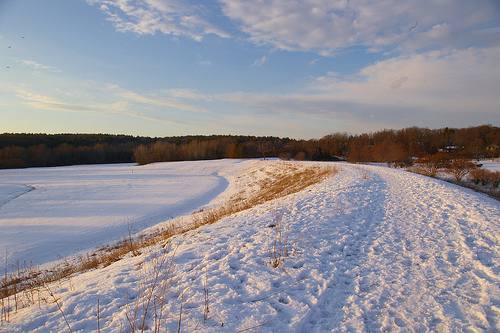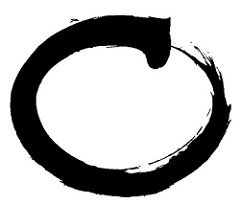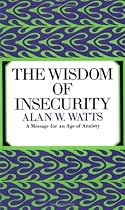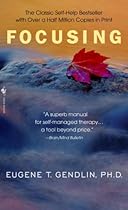
True knowledge exists in knowing that you know nothing. ~ Socrates
“And what do you do?”
Back when I was 21, I was unemployed. I didn’t know what I wanted to do, and I hated that question.
“I’m unemployed” was the truth, but I would cringe each time I gave that answer. In those days maybe there was more of a stigma to not having a job.
“Oh, why’s that then?” would be the response, and I would have to explain that I didn’t know what I wanted to do, or cover it over somehow. So I would avoid going to parties where I’d meet new people who would invariably ask me that question.
As an experiment, I tried pretending: “I’m a classical guitar maker” (a lie). “Oh how wonderful – how on earth did you get into that?” “Oh, I’ve been doing that for some time” (more lies).
I hated lying. Once you start lying you have to keep up the pretence. The person you just told tells someone else, and it gets around. And they ask you questions. You have to remember what lies you’ve told to whom, and you have to make sure that the people you’ve lied to don’t get to speak to any of your friends who know what you actually do. That you’re not, in fact, a guitar maker at all. You’re just out of work.
No, lying didn’t work. And telling the truth didn’t work either.
I felt so pressured from within and without to have a proper, respectable answer to that question. Why was it so important? It seemed like what you did defined your identity. What about me as a person? If I don’t do anything impressive, does that make me less valuable as a human being?
It seems so.
The question bothered me until I found an answer.
It came to me in the shower, while absent-mindedly washing my hair, when I wasn’t trying to solve anything.
It went something like this:
In anyone’s life, there are going to be times when everything seems to be going well, and when you have a sense of purpose, when you are clear about where you’re going in life.
But in the same life, there are also bound to be times when it’s not clear, times when you do not know. For some people these might be brief interludes. For others they might last longer, until things change.
But it’s impossible to have that kind of uninterrupted certainty for a whole lifetime.
So in anyone’s life, there are going to be times of not-knowing. And that has to be OK.
That not-knowing will last until things change, until you discover what you want to do.
And you can’t force that, you can’t make that certainty happen. Maybe it’ll only become clear when you leave where you’re living, or you meet somebody you haven’t met yet, who opens a door for you.
But now, at the moment, you don’t know what you want to do, and that’s OK…
This realisation was a tremendous relief. I stopped laying the trip on myself that I should know what I wanted to do, and was able more easily to accept life, just as it was at the time.
And in due course life did change, things opened up and the way ahead became clear…
But this was a valuable lesson: It’s alright not to know…
Not-knowing is not easy, it’s not comfortable, and it can be a place of great anxiety.
But if that’s how it is, that’s what is true.
And it’s OK…
Written for Zen Moments by Alan Lewis
The Wisdom of Insecurity
By Alan W. Watts
“An exploration of man’s quest for psychological security and spiritual certainty in religion and philosophy.”
“This book has changed my life. For anyone that has experienced depression and anxiety, this book explains the evolutionary reason for these emotions. Ultimately the books criticizes man for misusing his anxiety. We have become too anxious over stimuli that is all too trivial. The human animal has developed anxiety for his survival, but he now experiences anxiety that detrimentally affects his survival.”Amazon Reviews
Focusing
By Eugene T. Gendlin
“Focusing is a new technique of self therapy that teaches you to identify and change the way your personal problems concretely exist in your body. Focusing consists of steps of felt change. Unlike methods that stress “getting in touch with your feelings,” there is a built-in test: each focusing step, when done correctly, is marked by a physical relief, a profound release of tension. Focusing guides you to the deepest level of awareness within your body. It is on this level, unfamiliar to most people, that unresolved problems actually exist, and only on this level can they change.” Amazon Book Reviews
“… the book is completely practical. It teaches you how to get in touch with your body/mind–the part of you that feels and knows without using logic, morality, guilt, or blame. Once you get in touch with whatever your body/mind is experiencing in the present, you focus on that “felt sense.” Keeping your conscious awareness tuned to that feeling causes a movement in the energy, and ultimately a shift occurs,which you can physically feel as a release of a blockage or a point of tension. This technique works very well for those problems and issues that you thought you had worked through, but keep returning over and over again. The best part is, you can do this work without a therapist. After a while, you will find that your body (or rather, body/mind) becomes your best teacher on all matters of the heart and soul.” Amazon Book Reviews



I like these stories where Alan takes an everyday situation – the kind that we all have to deal with at some time – and just lays out ‘how it is’ so clearly.
I’ve so appreciated being able to just be in that space of “not knowing” what I want to do (when I grow up..!) for a while now – and it seems that a path is developing now, that I would never have guessed at… (and if not – then it’s been an interesting adventure…)
I’m having same situation now ,but without lies , i Avoid visiting my uncles ,Aunts ,avoid talking to friends ,and avoid lying ,it’s a bad feeling to think about ,i’m still unemloyed
The problem with not knowing is that it is sometimes tied to not doing. If you continue not doing, you will end up in the same situation and will continue to not know. Being active in your life and experiencing all the options available is the first way towards “knowing”.
I don’t think the point of the above article is that not knowing is tied to not doing. I think the point is that, in that exact moment, not knowing is ok because it is the truth at that moment in time. It is okay for you to not know something – whether it be the answer to a question that you feel like you /should/ know or what you’re going to do with the rest of your life.
It’s in that moment that you must realize it’s ok.
Of course, you should try to figure it out – that’s part of life. No one here is saying that it’s ok to just sit around on your duff and not know forever 🙂
Having been in so many ‘not-knowing’ situations myself, I really appreciate what you’ve shared Alan. The hardest part sometimes is having to give answers to other people when we don’t have any ourselves. But having been there makes me empathetic towards others who are going through such times.
Corinne
Hi Alan,
I’ve just stumbled across this account of ‘Not Knowing’ and really needed to hear this. I’m in exactly this space at the moment (minus the tall stories) and what I’m observing is it is anxiety provoking, it is unsettling and actually there is nothing to grasp onto. Apart from, I guess, a sense of self, but even that’s slippery!
I’ve just walked away from my job, signed on and feel a bit like a ‘no self’ but its what the universe seems to be calling me to do. So yes, I understand that experience.
Thanks for sharing it!
Much love and appreciation,
Vicky x
Hi Alan!
Not knowing is great. It’s when we release control that we allow for the magic in our lives to take place. We often think we know what is best but we can’t see the big picture of our lives. Therefore, better not pretend that we know where we are going and what we need to do. When we surrender, everything works better. 🙂
Thanks for the insightful words. Loving blessings!
Thank you for your post. I AM 21 and jobless right now, and with every word of yours i read, it felt like my own life was flashing before my eyes. In some way or the other, I’ve always had some sense of certainty in my life. Until now. I have never felt so lost and unsure. And it gets worse because I have always been a good student, and to now be the only person in my class who is unemployed, is giving others lots to laugh and talk about.
But thank you for writing this. It gives one some sense of calmness to know that it’s ok to not know all the answers at once.
Hey Alan, thank you for the post. I just came to a similar place inside myself, where I had to realize that it’s not only OK, but useful and fun to admit that I don’t know. I don’t know so many things! It’s wonderful working through these things, isn’t it? Intense sometimes, but wonderful.
If anyone wants to read more about this topic of not knowing and how to approach releasing false beliefs, check out my blog article at http://www.theworldwithin.org/2012/08/30/the-utility-and-fun-of-not-knowing/